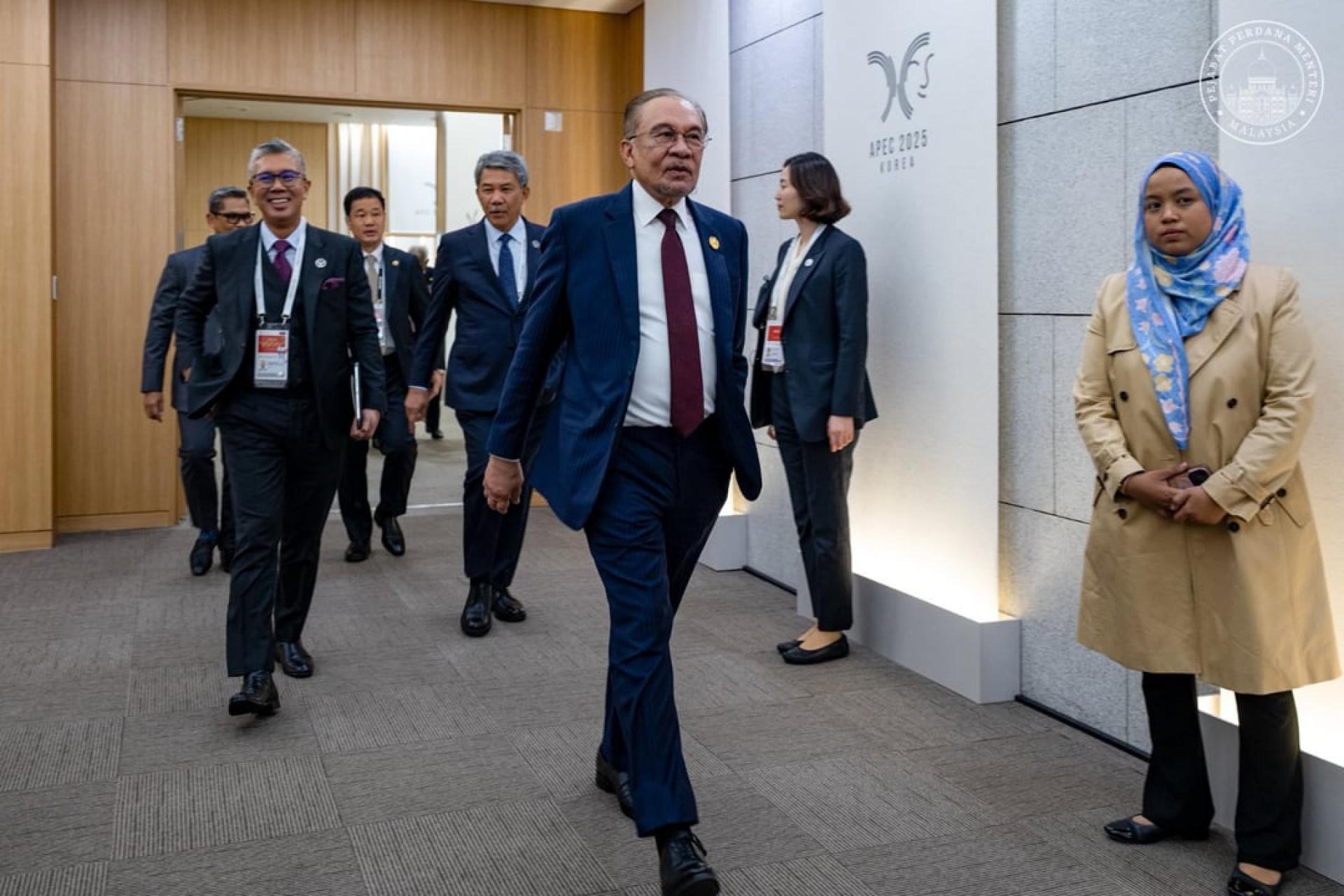Prime Minister Datuk Seri Anwar has called on Asia-Pacific Economic Cooperation (APEC) member economies to build bridges, extending beyond the platform to encourage greater participation of Latin American and African economies.
He said this would enable APEC’s agenda to be transformed into results that are more substantially transformative, inclusive, and truly impactful.
Speaking on behalf of Malaysia at the APEC Economic Leaders' Dialogue with Guests on Friday (October 31), Anwar pointed out that this goal could be achieved through formal or informal exchanges between related countries and APEC member economies.
"APEC should not only serve as a bridge among Asia-Pacific economies, but also broaden its engagement with Latin America and Africa, so as to promote the establishment of a more just and balanced global economic order between developed and developing countries (the global North and South).
"This will also pave the way for constructing a fairer economic system and narrowing the gap between the global North and South."
As Finance Minister, Anwar noted at the first day of the APEC Economic Leaders' Meeting that APEC has shown its leadership in the past; despite being voluntary and non-binding, the platform has served as a catalyst in shaping global economic norms.
"APEC took the lead in promoting the spirit of multilateral cooperation later adopted by the World Trade Organization (WTO), developed an early framework for trade facilitation, and set an example by voluntarily reducing tariffs on environmental goods.
"Therefore, APEC’s gentle yet persuasive approach, and its spirit of persuasion rather than coercion, may be exactly what the world needs today."
The Prime Minister said that looking ahead, APEC, composed of 21 economies, is actively cultivating new concepts to address the challenges of their shared future.
"These (topics) include green growth and sustainable finance, digital transformation and equitable access to technology, resilient supply chains and critical minerals, as well as food security, smart agriculture, and clean energy transition.
"These themes are highly aligned with the vision under Malaysia Madani’s Economic Framework, which aims to build a resilient, inclusive, and sustainably developed economy for all."
He emphasized that the current global transformation requires a whole-of-society approach to achieve real and value-added change.
"The future will belong to regions that can foster cooperation among government, industry, academia, and society. Collaborative governance does not mean sharing power, but sharing goals."
